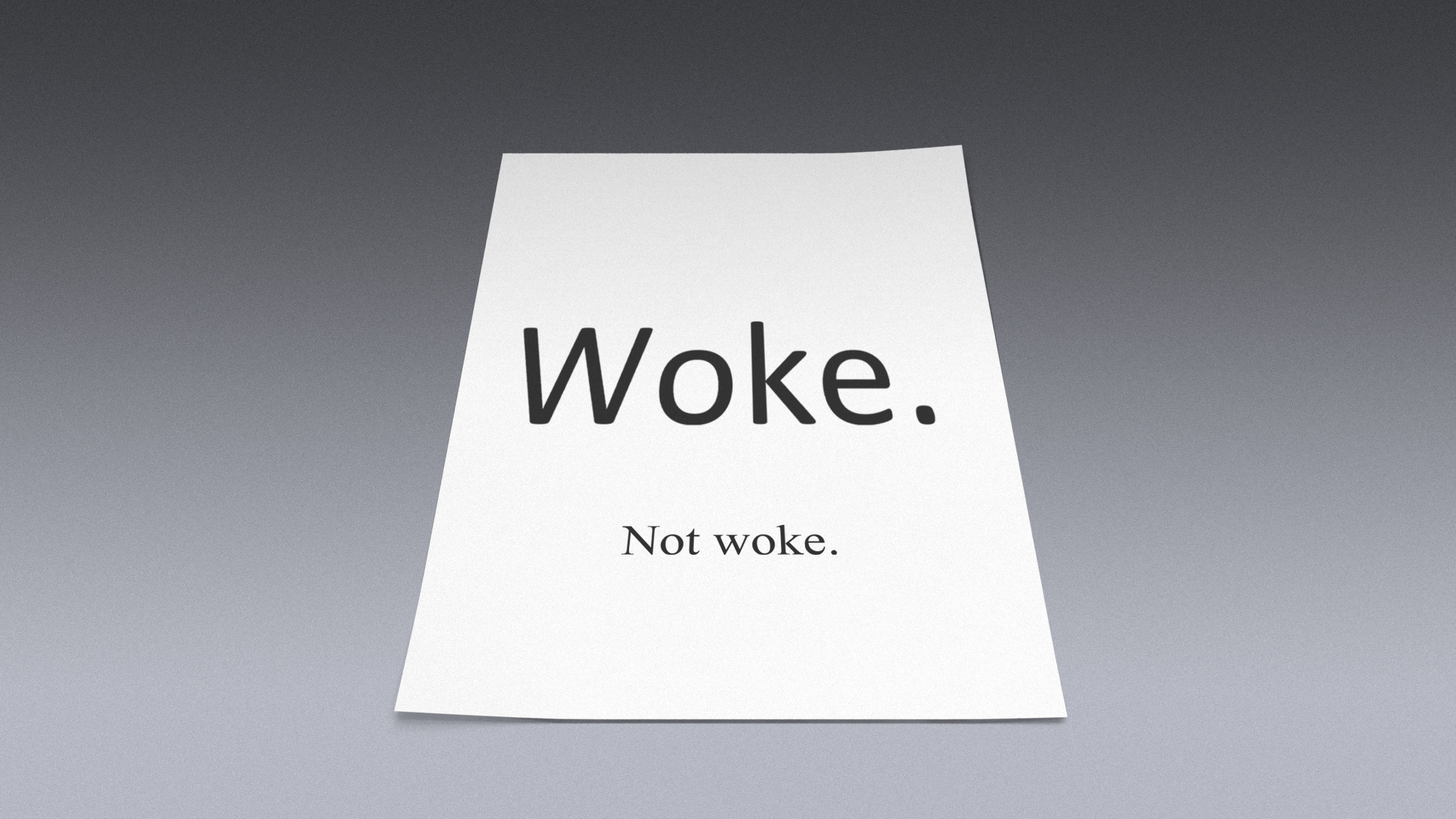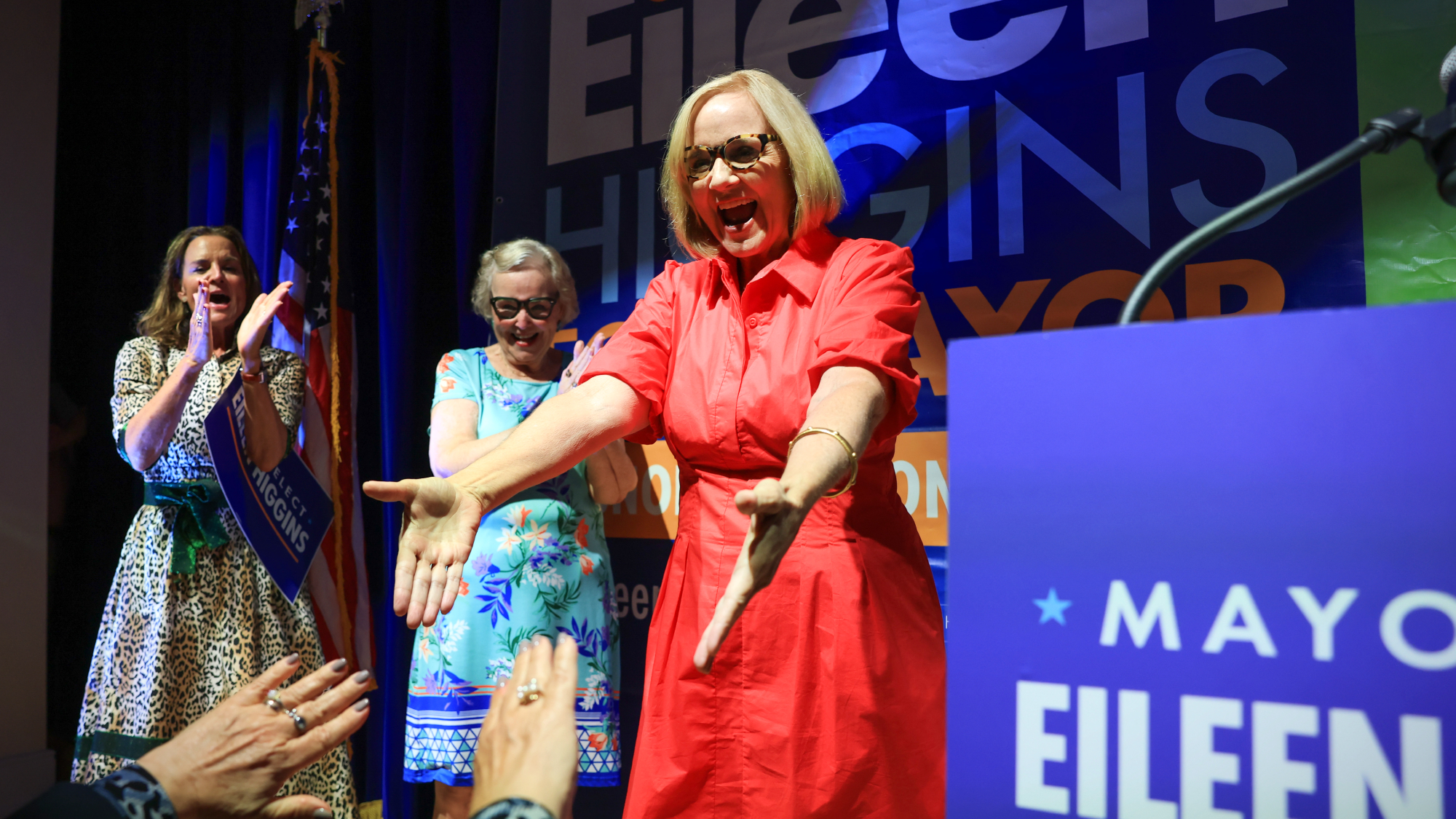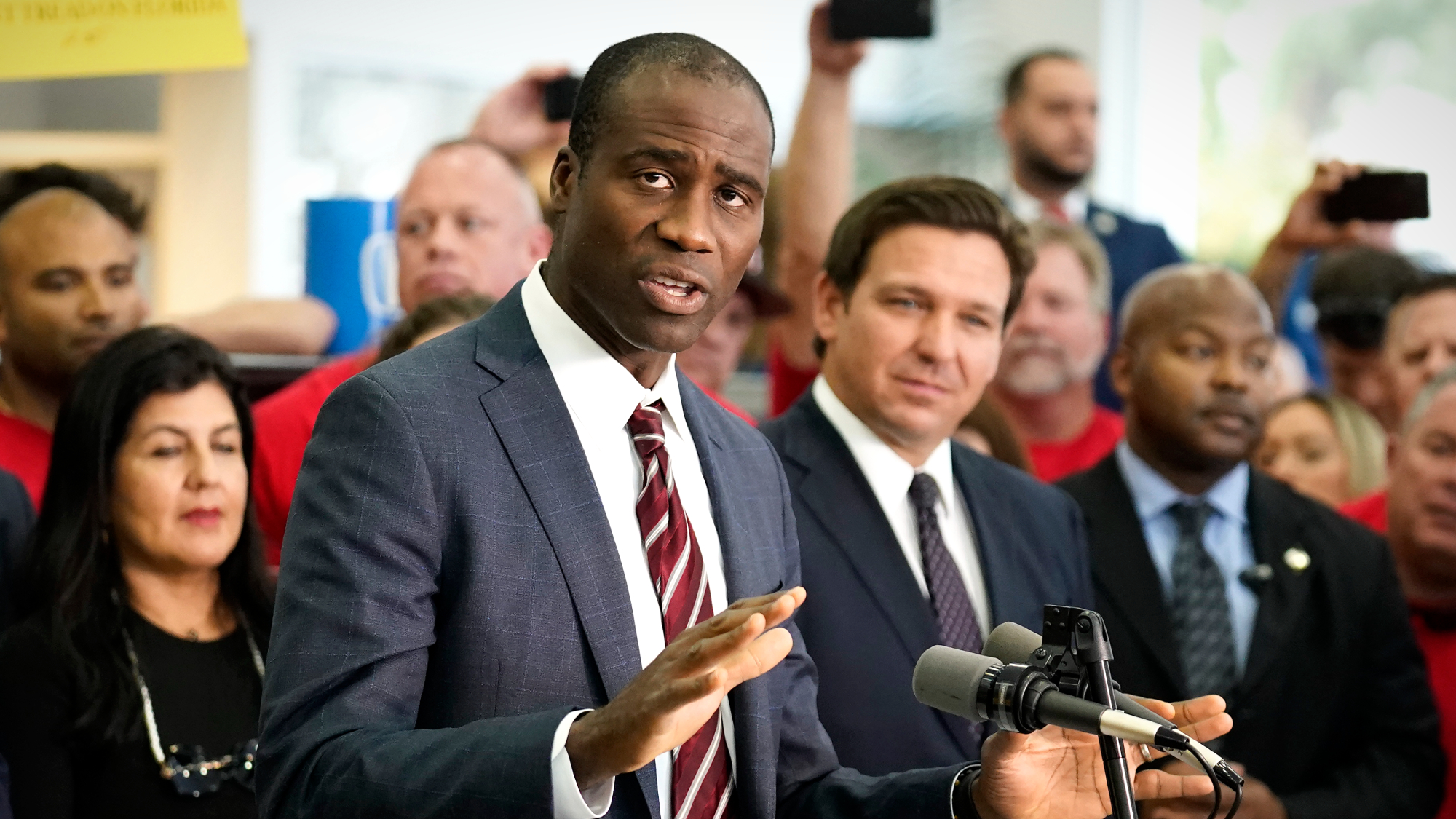Florida wages crosswalk war on public displays of pride
Gov. Ron DeSantis' anti-woke campaign comes for colorful crosswalks, as Florida residents engage in guerrilla graffiti as a form of resistance


A free daily email with the biggest news stories of the day – and the best features from TheWeek.com
You are now subscribed
Your newsletter sign-up was successful
Florida Gov. Ron DeSantis' (R) ongoing "war on woke" has placed crosswalks in the crosshairs as state officials and residents clash over public displays of LGBTQ pride. After directing crews to paint over the rainbow colored crosswalk outside Orlando's Pulse Nightclub, where 49 people were shot to death in 2016, DeSantis has also ordered the removal of nearly 400 "non-standard surface markings" to "keep our transportation facilities free and clear of political ideologies," said state Transportation Secretary Jared Perdue on X. In response, communities across Florida have begun engaging in guerrilla graffiti.
Picking fights 'where there weren't any'
The crosswalk issue has "been simmering" since July 1, when Transportation Secretary Sean Duffy issued a memo instructing states to "identify what he called safety improvements," said The Associated Press. In practice, the directive is "clearly an anti-LBGTQ push" by both the Trump administration and the "copycat version from the state government," said Rand Hoch, founder of the Palm Beach County Human Rights Council, to the AP. Florida is "often the vanguard nationwide in fights over what some call the culture wars of politics," said the AP.
In the context of DeSantis' other "recent cruelties," the anti-street art effort across Florida is "in one way the most startling," since the governor is "picking fights where there weren't any," said the South Florida Sun Sentinel editorial board. Just a few years earlier, DeSantis' own Department of Transportation "actively encouraged communities to have street art at their intersections" and "even sponsored a design contest for elementary school students." Only now, "all of a sudden, we're told it's bad for safety and consistency."
The Week
Escape your echo chamber. Get the facts behind the news, plus analysis from multiple perspectives.

Sign up for The Week's Free Newsletters
From our morning news briefing to a weekly Good News Newsletter, get the best of The Week delivered directly to your inbox.
From our morning news briefing to a weekly Good News Newsletter, get the best of The Week delivered directly to your inbox.
The "purge" by DeSantis has "reverberated in cities from Tallahassee to Key West," said The Guardian. Multiple communities have complied with the operation "under threat of losing state funding," while others are "digging in their heels, setting up a likely legal fight with the DeSantis administration." Erasing street art is "not just, 'I despise queer people,' which is clearly a part of the MO here," said state Rep. Anna Eskamani (D) to The Guardian. "It's bigger than that." Instead, DeSantis is "trying to control what local governments can and can't do and an effort to essentially target, harass, bully and potentially even eliminate them."
'People will conform their conduct accordingly'
Despite fierce opposition in cities across the state, DeSantis has remained steadfast in his insistence that his new policy is good governance. A colored roadway "creates safety hazards," the governor said at a Tuesday press conference in Orlando. There, "protesters, state lawmakers and local officials have been gathering to re-color in the crosswalk with chalk" outside the Pulse Nightclub site, Orlando Weekly said. Not only could it endanger "people just seeing it," DeSantis said, but it could create situations where a driver "may disagree with the message" and be "incentivized to try to, like, peel out or something."

At a separate press conference in Tampa, DeSantis framed his anti-street art effort as a "civics lesson," said The Guardian. "What I would tell kids is we have a representative system of government," DeSantis said. When elected officials enact legislation that is signed by a governor, "obviously people will conform their conduct accordingly."
A free daily email with the biggest news stories of the day – and the best features from TheWeek.com
Rafi Schwartz has worked as a politics writer at The Week since 2022, where he covers elections, Congress and the White House. He was previously a contributing writer with Mic focusing largely on politics, a senior writer with Splinter News, a staff writer for Fusion's news lab, and the managing editor of Heeb Magazine, a Jewish life and culture publication. Rafi's work has appeared in Rolling Stone, GOOD and The Forward, among others.
-
 ‘Dark woke’: what it means and how it might help Democrats
‘Dark woke’: what it means and how it might help DemocratsThe Explainer Some Democrats are embracing crasser rhetoric, respectability be damned
-
 A new serif in town: Trump’s font culture war
A new serif in town: Trump’s font culture warIn the Spotlight As the State Department shifts from Calibri to Times New Roman, is this just a ‘typographic dispute’, or the ‘latest battleground’ of a culture war
-
 What have Trump’s Mar-a-Lago summits achieved?
What have Trump’s Mar-a-Lago summits achieved?Today’s big question Zelenskyy and Netanyahu meet the president in his Palm Beach ‘Winter White House’
-
 Miami elects first Democratic mayor in 28 years
Miami elects first Democratic mayor in 28 yearsSpeed Read Eileen Higgins, Miami’s first woman mayor, focused on affordability and Trump’s immigration crackdown in her campaign
-
 Miami Freedom Tower’s MAGA library squeeze
Miami Freedom Tower’s MAGA library squeezeTHE EXPLAINER Plans to place Donald Trump’s presidential library next to an iconic symbol of Florida’s Cuban immigrant community has South Florida divided
-
 ‘Narcocorridos’: why Mexico is banning ‘drug ballads’
‘Narcocorridos’: why Mexico is banning ‘drug ballads’Under the Radar Authorities prohibit cartel-glorifying music genre – with limited success
-
 Florida aims to end all state vaccine requirements
Florida aims to end all state vaccine requirementsSpeed Read Health Secretary Robert F. Kennedy Jr. continues to cut vaccine access and install anti-vaccine activists at the FDA and CDC
-
 Anti-trans scandal roils major LGBTQ+ literary prize as authors withdraw en masse
Anti-trans scandal roils major LGBTQ+ literary prize as authors withdraw en massein the spotlight Multiple nominees for the UK's premier queer writing award have removed themselves from contention to protest the inclusion of a self-proclaimed 'trans-exclusionary radical feminist' in their ranks



